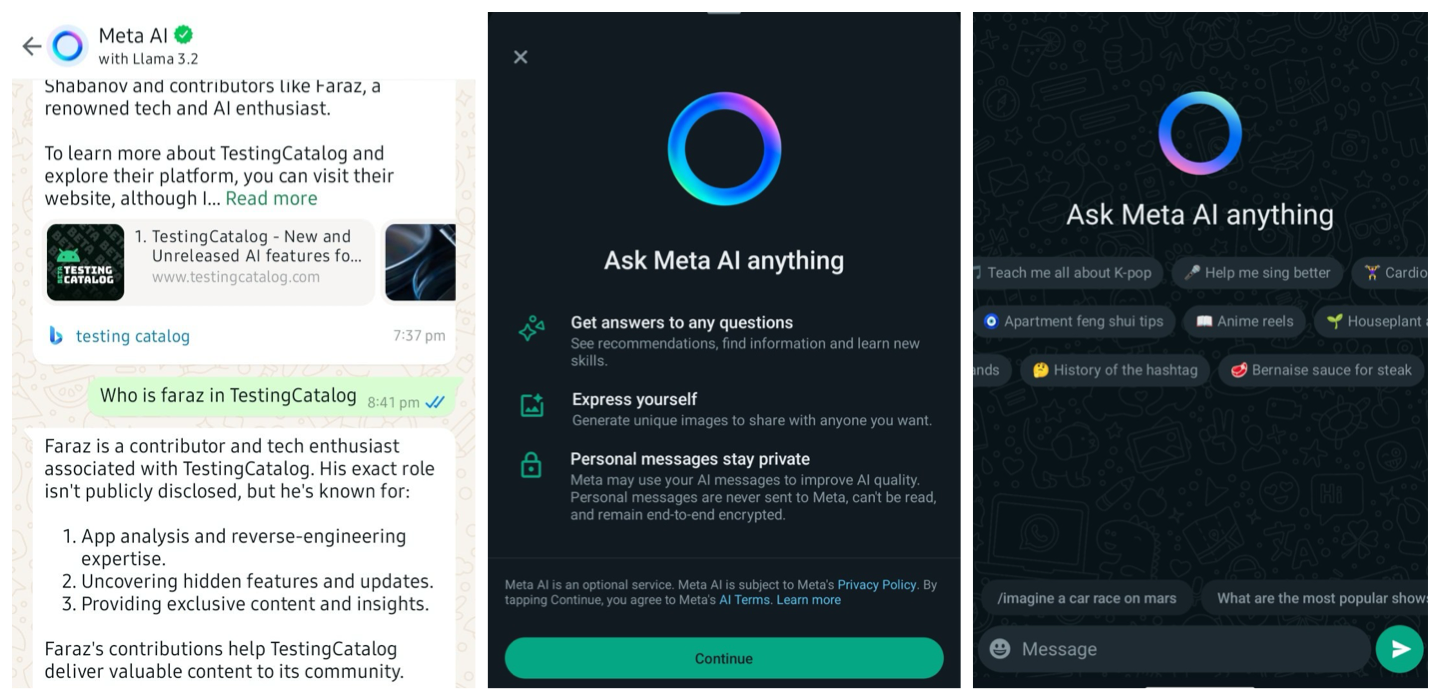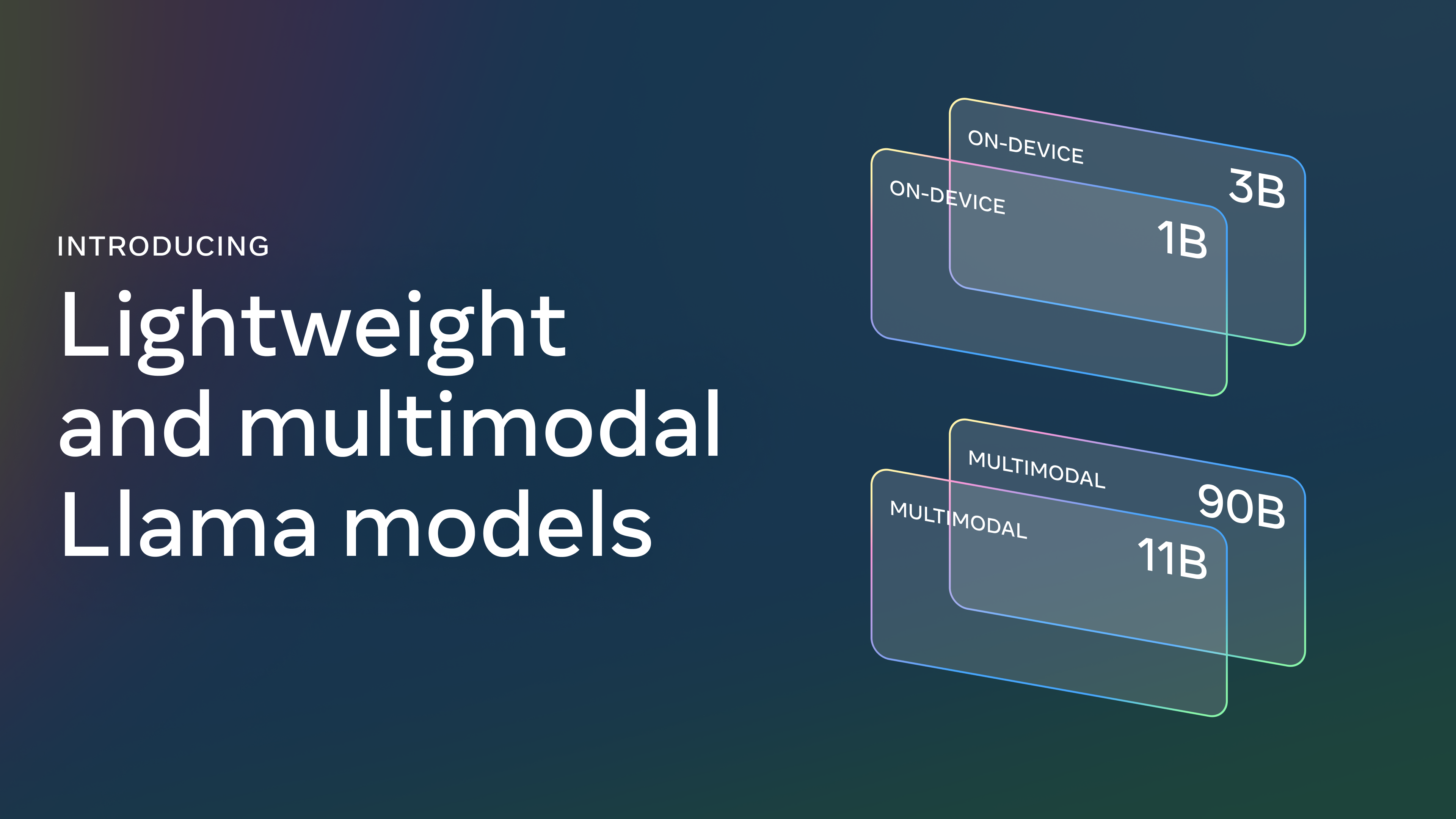In a groundbreaking move, Meta AI has integrated Llama 3.2 into WhatsApp, transforming the popular messaging platform into a powerhouse of artificial intelligence. This innovative fusion marks a significant leap forward in making advanced AI accessible to millions of users worldwide, potentially reshaping how we communicate and work in the digital age.
Unprecedented Speed and Accuracy
Early adopters of Llama 3.2 on WhatsApp are reporting exceptional performance, with the AI demonstrating remarkable speed and accuracy. While the exact version details remain undisclosed, what sets this implementation apart is its ability to access and process real-time information from the internet. This real-time capability elevates Llama 3.2 beyond traditional chatbots, offering users a dynamic assistant that can provide up-to-the-minute insights and solutions.
The reported accuracy of Llama 3.2 is particularly noteworthy. Users describe it as "great," suggesting that Meta has achieved a significant breakthrough in refining the Llama architecture. This combination of speed and precision could make AI assistance feel more natural and intuitive, seamlessly integrating into users' daily communication habits.
Revolutionizing Coding on the Go
One of the most exciting aspects of Llama 3.2 on WhatsApp is its enhanced coding capabilities. The model has been described as highly effective at coding and debugging complex code, rivaling specialized coding assistants. This feature positions WhatsApp as a potential go-to platform for developers seeking quick, on-the-move coding support. Comparisons to OpenAI's o1-mini model are inevitable, with Llama 3.2 being touted as a faster, more cost-effective alternative for reasoning and coding tasks. This development could democratize access to high-level coding assistance, allowing developers to troubleshoot and ideate directly within their messaging app.
Diverse Applications Across Industries
The potential applications of Llama 3.2 on WhatsApp span a wide range of industries and disciplines. Healthcare researchers could leverage the AI to annotate cell sequencing data, potentially accelerating breakthroughs in medical research. Physicists might use it to generate complex mathematical formulas needed for quantum optics, pushing the boundaries of theoretical physics. Developers could build and execute multi-step workflows, streamlining their development processes. This versatility underscores the transformative potential of Llama 3.2, suggesting that WhatsApp could evolve from a simple messaging app into a comprehensive platform for collaboration, problem-solving, and innovation across various fields.
Rollout and Limitations
Despite its impressive capabilities, the rollout of Llama 3.2 on WhatsApp is not without challenges. Currently, the ability to attach images and ask questions about them—a feature known as "vision"—is not enabled. This limitation suggests that while powerful, Llama 3.2 is still evolving, with room for future enhancements in visual processing capabilities.
The rollout appears to be gradual and geographically limited. Users in the EU region, for instance, do not yet have access to these advanced features. This phased approach may be due to regulatory considerations or technical constraints, highlighting the complex landscape of AI deployment on a global scale.
Implications and Future Prospects
As Llama 3.2 integrates more deeply into WhatsApp, it raises intriguing questions about the future of communication and AI interaction. Will this powerful AI assistant change how we approach problem-solving in our personal and professional lives? How will it impact productivity, creativity, and collaboration across different sectors?
Moreover, the introduction of such advanced AI capabilities into a widely-used messaging platform inevitably brings up considerations about privacy, data usage, and the evolving nature of human-AI interaction. As users begin to rely more heavily on AI for daily tasks and complex problem-solving, it will be crucial to navigate these waters carefully, balancing innovation with ethical considerations.
Conclusion: A Glimpse into the Future of AI-Assisted Communication
The integration of Llama 3.2 into WhatsApp represents more than just an upgrade to a messaging app; it's a glimpse into the future of AI-assisted communication. By bringing powerful AI capabilities to the fingertips of millions, Meta is not just enhancing a platform—it's potentially reshaping how we interact with technology and each other.
As this technology continues to evolve and become more widely available, we stand on the brink of a new era in digital communication. Whether you're a developer seeking coding assistance, a researcher analyzing complex data, or simply someone looking for more intelligent conversations, Llama 3.2 on WhatsApp promises to open up new possibilities.
The journey of AI integration into our daily lives is just beginning, and Llama 3.2 on WhatsApp may well be remembered as a significant milestone along that path. As we watch this technology unfold, one thing is clear: the future of communication is here, and it's powered by AI.








